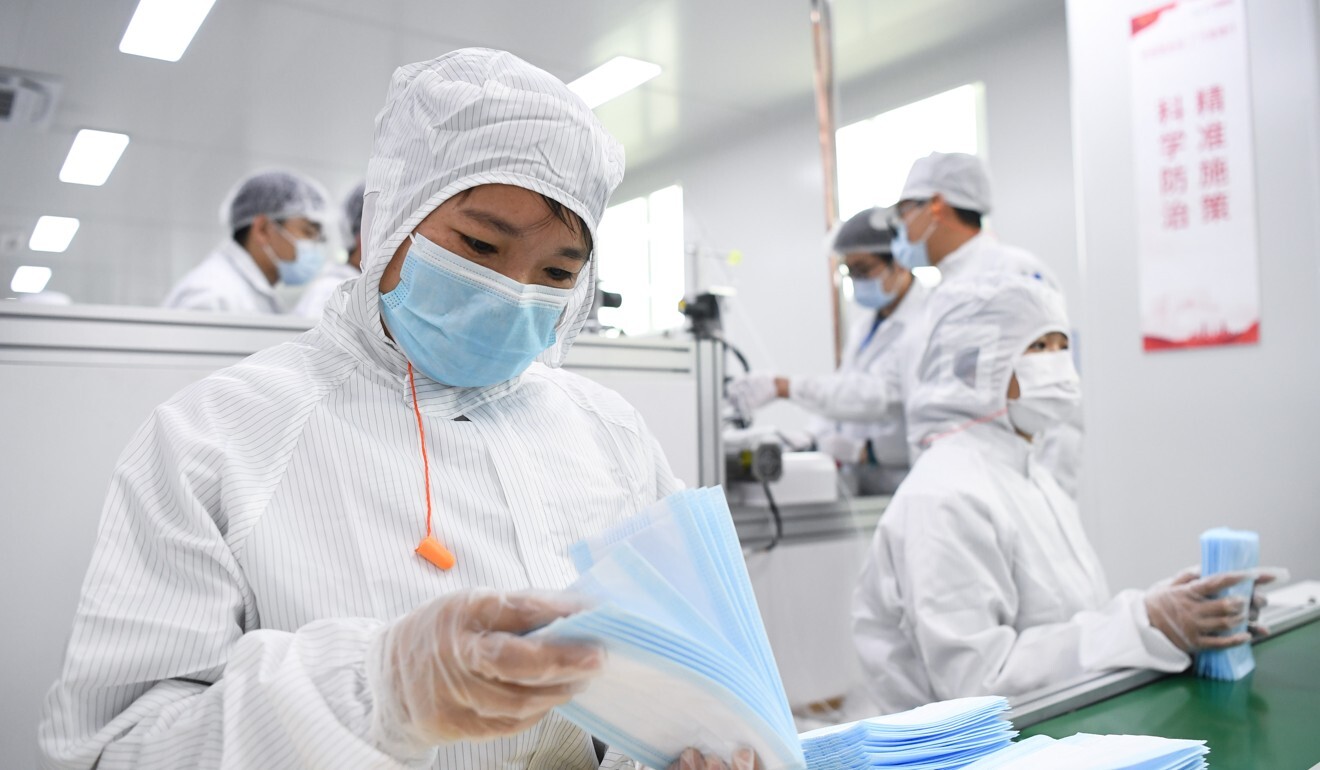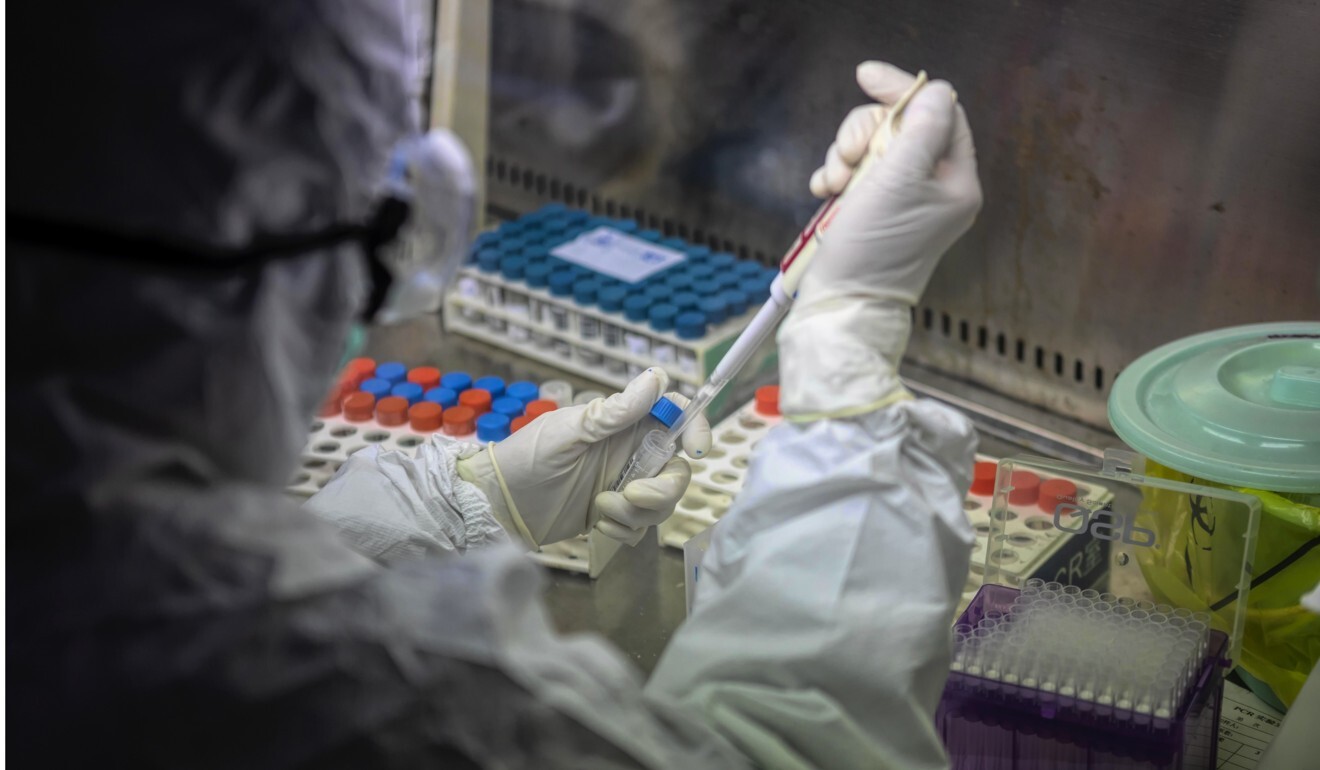
- ‘We are very sad that we can’t send [medical] gowns to our clients who are racing to save lives,’ Guangdong factory owner says
- Beijing ruled on Wednesday that only firms licensed to sell medical supplies at home can export them overseas.
- China’s new restrictions on the export of coronavirus-related medical supplies deal not only a blow to domestic producers but could leave countries still battling with a massive shortfall of essential items, industry insiders said.Beijing said on Wednesday that only those manufacturers with accreditation to sell their products within China are allowed to export test kits, surgical masks, protective gowns, ventilators and infrared thermometers, regardless of whether they have the quality certificates required to sell in or the .Companies have described the ruling as unreasonable and appealed for it to be lifted so they can ship their goods – many of which are now stockpiled in factories and at ports – to the places where they are most needed. Meanwhile, foreign buyers are racing to source sufficient stocks from legitimate Chinese suppliers.The came amid growing concerns abroad about the quality of some Chinese medical products. made by Shenzhen Bioeasy Biotechnology claiming they were not sufficiently accurate.China is the world’s largest producer of face masks and protective gowns, and as the coronavirus outbreak has been brought under control at home, so it has been able to export a larger proportion of its output.As of Saturday, close to 1.1 million people around the world had been infected with the virus, with the death toll edging towards 59,000.
- Several trade groups representing medical device manufacturers in the provinces of Guangdong, Zhejiang, Jiangsu, have petitioned their local governments and customs agencies to allow them to ship their products to help offset an economic downturn at home, industry insiders said.China is the world’s largest producer of face masks and protective gowns. Photo: XinhuaThe manager of a firm in Jiangsu that produces rapid test kits for Covid-19 said he expected the new export restrictions to cost the business more than 500 million yuan (US$70.3 million).“It’s not reasonable for the government to stifle nearly a whole industry merely because of an individual company,” he said.As the coronavirus began to spread within China, Beijing granted 23 local test kit manufacturers special licences to sell their goods at home. Under the new restrictions, those firms can now sell their products overseas, while those with European or US certification, but not a local licence, no longer can.“We support the government in trying to tighten quality controls, but there are other ways to do it,” said the manager, who asked not to be named because of the sensitivity of the issue.“The quality of many producers [that do not have domestic sales licences] is very good. We’ve already been licensed to sell to the EU and the US,” he said.
- The owner of a company in Guangdong that makes protective medical gowns, who also asked not to be named, said it would take between three and six months to get a licence to sell his products in China.“We are very sad that we can’t send gowns to our clients who are racing to save lives,” he said.“Also it should have been a good opportunity to hire workers amid an overall weak economy in China.”A lawyer in Hong Kong said he had been close to completing a deal involving the sale of hundreds of thousands of face masks to the US, when Beijing introduced the new export ban.While the rule was “probably for the best in the long run”, it was restricting people’s ability to get essential supplies to those places where there was an immediate need, he said.Chinese factories are working around the clock to meet the global demand for medical equipment. According to industry figures, more than 15,500 firms installed production lines for face masks in response to the spread of Covid-19 outbreak, pushing the country’s daily output to 160 million.The new export restrictions came after complaints about the quality of some Chinese medical products. Photo: EPA-EFEAlex Capri, a visiting senior fellow at the National University of Singapore Business School, said the shortage of face masks and other medical products would lead to countries relocating critical industries to lower their overreliance on China.Also, the trend of governments ordering factories to make medical supplies only for domestic sale would distort supply chains, and when the coronavirus subsided, those chains would be redundant, he said.
- Lee Yuen Chak, a director of AEM Enterprises, a Hong Kong company that sources medical equipment for African countries, said buyers should understand that Beijing was serious about enforcing tighter quality control measures.“At this critical juncture, when almost all countries around the world are looking at China for the supply of critically needed medical supplies, buyers need to be assured that the Chinese government is not adopting a laissez faire market attitude,” he said.Only China had the speed and ability to supply the quantity of medical supplies required by the rest of the world, he said.Lee said his firm had tried sourcing products from South Korea, but the east Asian nation’s production capacity “paled in comparison to China” and its prices were higher.“China understands the gravity of its role in combating the worldwide Covid-19 scourge but it must do so with full responsibility and integrity. The new rules show it has stepped up to that role,” he said.




No comments:
Post a Comment